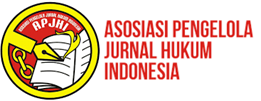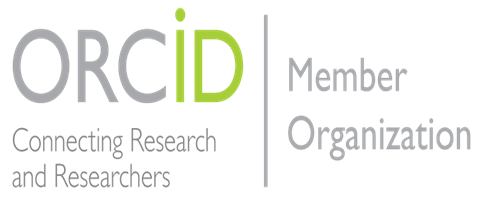Medical Ethics Implementation of Health Services in The Digital Era: A Challenge of Health Revolution
DOI:
https://doi.org/10.70193/ijlsh.v2i1.229Keywords:
Medical ethics, Healthcare, Digital Age, Challenges, Healthcare RevolutionAbstract
Technological advances have played an important role in the advancement of health care, resulting in changes in the methods of interaction between doctors and patients, the procedures for establishing disease diagnosis and changes in the management of medical information. The current reliance on technology raises ethical dilemmas, privacy and data protection, medical consent, social inequality, medical consultation, empathy, and sympathy. This study aims to assess various information about the ethical challenges that healthcare workers will face in the digital era. This research is a literature review using a descriptive narrative approach. Data collection was conducted by searching online and through electronic media from various sources, including theses, dissertations, scientific publications, and e-books. Ethical challenges faced by health workers start from doctor-patient communication patterns, physical examinations, supporting examinations, diagnosis and even medical information management, which have all evolved towards digitalisation. These ethical challenges include ethical aspects of interaction patterns through telemedicine, medical support examinations, the use of electronic medical records, disease management and maintaining the confidentiality of medical information that is prone to leakage.
Downloads
References
Amin, Y. (2017). Etika Profesi dan Hukum Kesehatan (1st ed.). Kementerian Kesehatan Republik Indonesia.
Azalia, Z., Ramadhaningrum, O., Nuranisa, S. S., Alya, P., Kurnaesih, E., & Kesehatan, F. I. (2024). Penerapan Prinsip Etika pada Penggunaan Rekam Medis. Jurnal Kesmas Untika Luwuk, 15(2), 146–153.
Belrado, R. N., Harmendo, & Wahab, S. (2024). Analisis Penggunaan Rekam Medis Elektronik di Rumah Sakit. Jurnal Penelitian Perawat Profesional, 6(4), 1779–1798.
Budiyanti, R. T., Herlambang, P. M., & Nandini, N. (2019). Tantangan Etika dan Hukum Penggunaan Rekam Medis Elektronik dalam Era Personalized Medicine. Jurnal Kesehatan Vokasional, 4(1), 49. https://doi.org/10.22146/jkesvo.41994
Chandwani, R. K., & Dwivedi, Y. K. (2015). Telemedicine in India: Current State, Challenges and Opportunities. Transforming Government: People, Process and Policy, 9(4), 393–400. https://doi.org/10.1108/TG-07-2015-0029
Damayanti, F. N., Absori, Wardiono, K., & Rejeki, S. (2020). Ethical and Legal Issues in the Use of Online-Based Health Services (E-Health). SOEPRA Jurnal Hukum Kesehatan, 6(1), 15–23.
Dharma, R. A., Hasibuan, I. L., & Harahap, R. A. (2024). Tantangan dan Solusi dalam Menerapkan Etika Pelayanan Kesehatan Tenaga Medis di Era Digital: Literature Review. Jurnal Inovasi Kesehatan Terkini, 6(3), 247–255.
Dugdale, L. ., & Braswell, H. (2021). Instacash: The Ethics of Leveraging Medical Student Status on Social Media. Journal of Tahe Association of American Medical Collages, 96(4), 507–511.
Farhud, D. D., & Zokaei, S. (2021). Ethical Issues of Artificial Intelligence in Medicine and Healthcare. Iranian Journal of Public Health, 50(11), i–v. https://doi.org/10.18502/ijph.v50i11.7600
Gouget, B., & Lajonchere, J. (2000). Telemedicine (Network Technology): Its Role in Laboratory Medicine and Pathology. Sage Journal, 5(1), 16–18.
Haleem, A., Javaid, M., Singh, R. P., & Suman, R. (2021). Telemedicine for Healthcare: Capability, feature, barrier, and applications. Sensors International, 2. https://www.ncbi.nlm.nih.gov/pmc/articles/PMC8590973/pdf/main.pdf
Holijah, Yulianty, L., Alki, A., Sulaida, Siska, D., & Rahmat, S. (2023). Etika Antar Tenaga Medis dalam Penyelenggaraan Pelayanan Kesehatan. Lentera Perawat, 4(2), 131–137.
Ibrahim, A. M., Abdel-Aziz, H. R., Mohamed, H. A. H., Zaghamir, D. E. F., Wahba, N. M. I., Hassan, G. A., Shaban, M., EL-Nablaway, M., Aldughmi, O. N., & Aboelola, T. H. (2024). Balancing Confidentiality and Care Coordination: Challenges in Catient Privacy. BMC Nursing, 23(1), 1–14. https://doi.org/10.1186/s12912-024-02231-1
Ismiyah, N., Asy-syifa, A. M., & Mangkurat, L. (2024). Telemedicine dan Kesehatan : Memahami Dampak Teknologi Kedokteran di Era Digital dalam Konteks Ajaran Islam. Jurnal Medika Nusantara, 2(4), 45–55.
Kalaivani, K., Anjalipriya, V., Sivakumar, R., & Srimeena, R. (2015). An efficient Bio-key Management scheme for telemedicine applications. Proceedings - 2015 IEEE International Conference on Technological Innovations in ICT for Agriculture and Rural Development, TIAR 2015, 122–126. https://doi.org/10.1109/TIAR.2015.7358543
Khan, A. M., Taj, R., Naveed, A., & Wali, A. (2023). Medical Ethics in a Digital Era: A Systematic Review. Global Bioethics Enquiry Journal, 10(3), 134–142. https://doi.org/10.38020/gbe.10.1.2022.134-142
Miliyandra, Kurniati, Y., & RAS, H. (2023). Medical Professional Ethics in the Digital Era: Legal Implications for the Use of Technology in Health Services. Formosa Journal of Social Sciences (FJSS), 2(4), 589–602. https://doi.org/10.55927/fjss.v2i4.7357
Nittari, G., Khuman, R., Baldoni, S., Pallotta, G., Battineni, G., Sirignano, A., Amenta, F., & Ricci, G. (2020). Telemedicine Practice: Review of the Current Ethical and Legal Challenges. Telemedicine and E-Health, 26(12), 1427-. https://doi.org/10.1089/tmj.2019.0158
Nugraheni, N. (2018). Aspek Hukum Rekam Medis Elektronik di RSUD Dr Moewardi. Prosiding Seminar Nasional Unimus, 1, 92–97.
Santosa, F., Rozaliyani, A., Widiarto, D., & Sidipratomo, P. (2024). Dilema Etika di Kamar Operasi dan ICU: Perlukah Fatwa Informed Consent yang Diperluas? Jurnal Etika Kedokteran Indonesia, 8(1), 5–9. https://doi.org/10.26880/jeki.v8i1.74
Smith, A., & Anderson, M. (2018). Social Media Use in 2018. In Pew Research Center. https://www.pewresearch.org/internet/2018/03/01/social-media-use-in-2018/
Syamsuddin, S., & Jusliani. (2024). Implementasi Telemedicine dan Implikasinya terhadap Akses serta Kualitas Pelayanan Kesehatan di Komunitas Pedesaan: Mini Review. Jurnal Riset Sains Dan Kesehatan Indonesia, 1(3), 117–123.
Tegegne, M. D., Melaku, M. S., Shimie, A. W., Hunegnaw, D. D., Legese, M. G., Ejigu, T. A., Mengestie, N. D., Zemene, W., Zeleke, T., & Chanie, A. F. (2022). Health Professionals’ Knowledge and Attitude Towards Patient Confidentiality and Associated Factors in a Resource-Limited Setting: A Cross-Sectional Study. BMC Medical Ethics, 23(1), 1–10. https://doi.org/10.1186/s12910-022-00765-0
Downloads
Published
How to Cite
Issue
Section
License
Copyright (c) 2025 International Journal of Law, Social Science, and Humanities

This work is licensed under a Creative Commons Attribution 4.0 International License.














